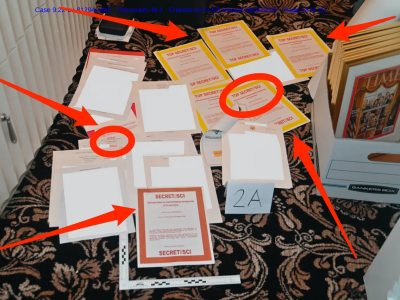- Dec 8, 1999
- 7,436
- 29,678
With fewer than fifty days left before the pivotal 2024 US election, we urge all eligible voters to check or submit their voter registration and make a plan to vote on or prior to the November 5th Election Day.
Contrary to claims that "both sides are the same," this year's candidates vary widely in their views on most major issues: https://www.nbcnews.com/politics/20...nce-issues-policies-president-race-rcna150570
The turnout in that election was so poor, however, that if the refusal to vote counted as a vote for “nobody,” nobody would've won the election by a landslide.
Failing to vote transfers your power to those who do - amplifying their voices at the cost of your own.
The 2024 election will decide more than just the Presidency. Local elections will determine who, in your area, will be entrusted with housing/zoning policies, public school policies, prosecutorial decisions, managing police personnel, regional transportation, and more.
In ten states, voters will will determine access to reproductive healthcare through ballot initiatives.
Click here to check your voter registration status and make sure your information is up to date.
This election will likely be one of the most scrutinized in American history. Outdated or inaccurate registration information could invalidate your vote.
If you're not registered, you can register online now. Registration deadlines vary by state. Some states, including Texas and Ohio, require voters to register 30 days before the election. You can check your state's registration deadlines here: https://www.vote.org/voter-registration-deadlines/
Click here for help submitting your absentee ballot request online. If you intend to vote by mail, you must place your request soon enough to ensure that you both receive your ballot and mail it in time for your votes to be counted. This guide can help you plan: https://www.vote.org/voter-registration-deadlines/
As in 2020, delivery delays could prevent some mail-in ballots from being counted. Avoid potential disfranchisement by submitting your ballot as soon as you're able.
You can bypass the USPS by depositing your absentee ballot at your local elections office, or by using one of the drop boxes available in most states. To find your nearest ballot drop off location, consult your local election office.
Don't forget to sign your ballot envelope in the appropriate space, or it will not be counted.
If you plan to vote in person, please consider participating in early voting if available in your area. Voting early could help you avoid long lines and prevent a “mirage victory,” in which election night results will be contradicted after the final absentee ballots are counted – a scenario which would almost certainly result in a protracted dispute over the election's outcome.
Many key states allow early voting up to 45 days prior to the November 5th election. To find out when you can cast your ballot, refer to this early voting calendar:
Voter intimidation is a crime. Know your voting rights: https://www.aclu.org/know-your-rights/voting-rights/#someone-is-interfering-with-my-right-to-vote
Encourage friends and family to register and vote.
You have the right to assist a friend or family member who has difficulty communicating in English.
In many states, you can help deliver your family members' sealed absentee ballots to a drop box or election office to keep them safe and encourage them to vote. Learn the requirements for your state here: https://www.ncsl.org/research/elect...-an-absentee-ballot-other-than-the-voter.aspx
Sign up to serve as a poll worker. Elections offices across the country are reporting record turnover for poll workers, due in part to threats and intimidation from conspiracy theorists. Poll workers are critical to our ability to conduct free and fair elections. If departing workers are not replaced, the resulting delays to vote casting and counting could effectively disfranchise many Americans. You can help fill the void, keep lines reasonable, and ensure that all those eligible to vote will have their ballots counted.
Poll workers are paid, and wages vary by location. Many areas are raising wages to help meet their demand. In New York, poll workers could make up to $2,750 over ten days. In Chicago and Cook County, poll workers will earn $230 on election day, and $150 per day during early voting. In Miami Dade County, poll workers earn up to $269 between election day and training.
Document and report attempted interference or intimidation.
The effects of this election will likely be felt for generations. Participating is worth the effort.
Contrary to claims that "both sides are the same," this year's candidates vary widely in their views on most major issues: https://www.nbcnews.com/politics/20...nce-issues-policies-president-race-rcna150570
Your Vote Matters
In 2016, Michigan was decided by an average of just two votes per precinct.The turnout in that election was so poor, however, that if the refusal to vote counted as a vote for “nobody,” nobody would've won the election by a landslide.
Failing to vote transfers your power to those who do - amplifying their voices at the cost of your own.
The 2024 election will decide more than just the Presidency. Local elections will determine who, in your area, will be entrusted with housing/zoning policies, public school policies, prosecutorial decisions, managing police personnel, regional transportation, and more.
In ten states, voters will will determine access to reproductive healthcare through ballot initiatives.
Click here to check your voter registration status and make sure your information is up to date.
This election will likely be one of the most scrutinized in American history. Outdated or inaccurate registration information could invalidate your vote.
If you're not registered, you can register online now. Registration deadlines vary by state. Some states, including Texas and Ohio, require voters to register 30 days before the election. You can check your state's registration deadlines here: https://www.vote.org/voter-registration-deadlines/
How To Vote By Mail
More and more voters have begun submitting their votes by mail to avoid large crowds and long lines at the polls. To vote by mail, you'll need to ensure that you've requested an absentee ballot. In some states, you may register as a "permanent mail-in voter" and automatically receive ballots by mail for upcoming general and primary elections.Click here for help submitting your absentee ballot request online. If you intend to vote by mail, you must place your request soon enough to ensure that you both receive your ballot and mail it in time for your votes to be counted. This guide can help you plan: https://www.vote.org/voter-registration-deadlines/
As in 2020, delivery delays could prevent some mail-in ballots from being counted. Avoid potential disfranchisement by submitting your ballot as soon as you're able.
You can bypass the USPS by depositing your absentee ballot at your local elections office, or by using one of the drop boxes available in most states. To find your nearest ballot drop off location, consult your local election office.
Don't forget to sign your ballot envelope in the appropriate space, or it will not be counted.
How To Vote Early
If you receive an absentee ballot, we recommend that you complete, sign, and return your ballot as soon as possible. You do not need to wait until election day.If you plan to vote in person, please consider participating in early voting if available in your area. Voting early could help you avoid long lines and prevent a “mirage victory,” in which election night results will be contradicted after the final absentee ballots are counted – a scenario which would almost certainly result in a protracted dispute over the election's outcome.
Many key states allow early voting up to 45 days prior to the November 5th election. To find out when you can cast your ballot, refer to this early voting calendar:
Early Voting Calendar - Vote.org
How To Make Sure Your Vote Counts
- Check your voter registration and ensure that all information is up to date - including your signature.
- If you're voting in person, make sure you bring any required ID with you. Check your state's voter ID requirements here: https://www.ncsl.org/research/elections-and-campaigns/voter-id.aspx#Laws in Effect
- If you are still waiting in line when the polls close, don't leave - you still have the right to vote.
- If voting the voting machines at your polling place go down, you have the right to a paper ballot.
- If you need help obtaining the correct ID, Vote Riders offers assistance, including financial and legal assistance if necessary.
- If you use an absentee ballot, be certain that you've sealed and signed the envelope in the appropriate location.
- Be sure to visit the appropriate polling site. Find yours here: https://www.vote.org/polling-place-locator/
- If an election judge raises any questions about your eligibility, you may request a provisional ballot – but these ballots have been historically under-counted and should be treated as a last resort.
- If you have a felony conviction, you are still eligible to vote in most states. Visit this site for more information: https://campaignlegal.org/restoreyourvote
Voter intimidation is a crime. Know your voting rights: https://www.aclu.org/know-your-rights/voting-rights/#someone-is-interfering-with-my-right-to-vote
How To Help Others Vote
There are many ways to help protect our democracy and promote voter turnout. Here are a few basics:Encourage friends and family to register and vote.
You have the right to assist a friend or family member who has difficulty communicating in English.
In many states, you can help deliver your family members' sealed absentee ballots to a drop box or election office to keep them safe and encourage them to vote. Learn the requirements for your state here: https://www.ncsl.org/research/elect...-an-absentee-ballot-other-than-the-voter.aspx
Sign up to serve as a poll worker. Elections offices across the country are reporting record turnover for poll workers, due in part to threats and intimidation from conspiracy theorists. Poll workers are critical to our ability to conduct free and fair elections. If departing workers are not replaced, the resulting delays to vote casting and counting could effectively disfranchise many Americans. You can help fill the void, keep lines reasonable, and ensure that all those eligible to vote will have their ballots counted.
Poll workers are paid, and wages vary by location. Many areas are raising wages to help meet their demand. In New York, poll workers could make up to $2,750 over ten days. In Chicago and Cook County, poll workers will earn $230 on election day, and $150 per day during early voting. In Miami Dade County, poll workers earn up to $269 between election day and training.
Document and report attempted interference or intimidation.
The effects of this election will likely be felt for generations. Participating is worth the effort.














